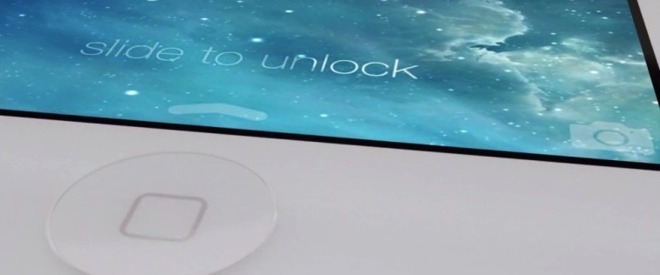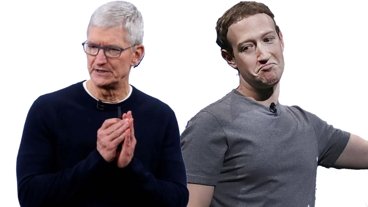Several interested parties have filed amicus curae briefings with the Supreme Court, urging the body to discuss the second Apple versus Samsung patent trial, and specifically evaluate the "obviousness" of Apple's Slide-to-unlock patent, and how it may have been misinterpreted by lower courts.
Individual filings in support of Samsung were made by the Software and Information Industry Association, and the Internet Association. One joint statement was made by the Hispanic Leadership Fund and the National Grange, with a second joint filing composed by Electronic Frontier Foundation, Engine Advocacy, and Public Knowledge.
All three friend of the court briefings address the interpretation of "obviousness" as it applies to patent law. Mostly using the same cases, the briefings claim that the lower courts definition of obviousness and what should be patentable flies in the face of precedence, and is dangerous for the future.
Apple's patent hold on slide-to-unlock is challenged in all of the filings, with the briefs claiming that the user interface method should have been declared as obvious, and non-patentable by the court given precedents spanning 50 years of case law. Additionally, the various groups filing all believe that should the ruling stand, it will have profound negative effects on a patent system already in need of reform.
One industry which would be significantly disrupted by the more restrictive view of obviousness in patents is the 3d printing industry. Already under fire from within, as well as from outside, the fight for patentability of raw materials for the 3d printers themselves may be hamstrung by a ruling supporting Apple.
A pro-Apple decision as it stands may serve to limit consumers with the printers to strictly patent controlled "feed stock" raw materials, and only those approved by the vendor that made the printer, according to the briefings.
Other impacted industries listed are pharmaceuticals specifically surrounding the current EpiPen pricing struggle, confusion at retail including package tracking technologies, and automotive part suppliers.
The writ of certiorari is required at this point because Samsung has exhausted all of its appeals with the lower courts on the matter. Should the Supreme Court agree with the briefings, the writ will re-open the appeals process surrounding the "slide to unlock" patent, and associated matters.
Annually, the Supreme court sees in excess of 8,000 requests, and approves around 1 percent. A writ is no guarantee of an overturn, and approving or denying a writ does not speak to the validity of lack thereof of any given case. Writs are only granted when the court sees sufficient danger to legal frameworks, necessitating a ruling by the highest court in the land — or an order for a lower court to re-examine the ruling.
The long legal battle continues
In the original jury decision handed down in May 2014 both Samsung and Apple were found to have infringed on each others' patents. Samsung was still ordered to pay $119.6 million in damages to Apple for violating three patents, a far cry from the $2.2 billion Apple was seeking.
Following weeks of testimony and three days of deliberations, the eight-member Apple v. Samsung jury reached a decision awarding Apple $119,625,000 on three infringed patents and Samsung $158,400 on one patent.
The jury found all accused Samsung devices in infringement of Apple's '647 data detectors patent and partial infringement on the '721 patent for "slide-to-unlock" functionality, a contentious piece of IP in the case. Presiding Judge Lucy Koh already found Apple's '172 patent for text prediction to be infringed by Samsung in a summary judgment in January. Samsung emerged victorious on allegations regarding the '959 universal search and '414 background syncing patents.
A previous appeal filed by Samsung in January 2016 resulted in the verdict getting tossed in February, and found the patents either not obvious, or infringed. On review, a full court ruled in an 8-3 vote in October to reaffirm the verdict, and the $119.6 million award.
In November 2016, the appeals court refused Samsung's bid for a second re-hearing of the storied 2014 patent trial with Apple, and issued no commentary about the refusal.
As a result, Samsung is now on the hook for the $119.6 million ruling. Should the Supreme Court decline the writ, the matter is concluded.
 Mike Wuerthele
Mike Wuerthele







-m.jpg)






 Wesley Hilliard
Wesley Hilliard
 Malcolm Owen
Malcolm Owen
 Andrew Orr
Andrew Orr
 William Gallagher
William Gallagher
 Sponsored Content
Sponsored Content
 Christine McKee
Christine McKee

 Thomas Sibilly
Thomas Sibilly






18 Comments
Why doesn't the judge just throw the whole sorry mess of a case out of court. I bet they've spent 10's millions in lawyer fees all over some silly rectangles and swiping fingers, ridiculous and childish.
everything is obviousness in hindsight
I know there's at least a couple of forum members who take an interest in the dirty details of these patent infringement lawsuits. This is the brief for Public Knowledge and the Electronic Frontier that explains the basis for their argument.
https://www.scribd.com/document/345075854/17-04-10-Public-Knowledge-EFF-Engine-Amicus-Brief
The Neverending Story"
I wonder if the original dial on telephones was patented or not. Ask anyone born after 1995 to use one to make a call and you will see how un-obvious it was.